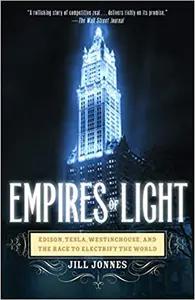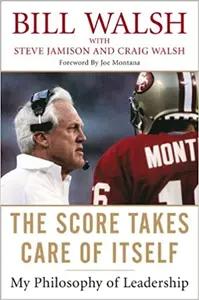The Power Law: Venture Capital and the World It Made
By Sebastian Mallaby
Category
TechnologyRecommended by
"The Power Law" by Sebastian Mallaby offers a compelling examination of power dynamics in society, politics, and economics, dissecting how certain individuals and organizations consistently accrue and wield influence over others. Relying on extensive research and illuminating case studies, Mallaby presents a nuanced exploration of the various manifestations of power and the strategies employed by those who seek to attain and maintain it.
Through the lens of history, Mallaby reveals the timeless existence of power laws, patterns that demonstrate the unequal distribution of power within systems. He delves into the reasons behind this unequal distribution, discussing the role of natural abilities, luck, and cumulative advantages. At the same time, Mallaby acknowledges the potential dangers inherent in excessive concentrations of power and examines the negative effects it can have on societies and economies.
Utilizing his deep knowledge of the financial world, Mallaby examines the power dynamics within this sector, uncovering the critical role that investors, entrepreneurs, and regulators play in shaping economic systems. He also explores the concept of soft power, demonstrating how individuals and institutions can gain and leverage influence through non-coercive means such as persuasion, reputation, and social networks.
Mallaby's analysis extends beyond individual power to institutional and structural power within governments and organizations. He scrutinizes the ways in which institutions can be designed to either amplify or constrain power, presenting both historical and contemporary examples to highlight the impact of institutional design on the distribution of power.
"The Power Law" provides readers with a thought-provoking exploration of power dynamics, uncovering the underlying principles that govern their existence. Mallaby's rigorous analysis and engaging storytelling shed light on the intricate mechanisms and implications of power, leaving readers with a deeper understanding of how power operates in various realms of life and the potential consequences it holds for individuals and societies as a whole.
Through the lens of history, Mallaby reveals the timeless existence of power laws, patterns that demonstrate the unequal distribution of power within systems. He delves into the reasons behind this unequal distribution, discussing the role of natural abilities, luck, and cumulative advantages. At the same time, Mallaby acknowledges the potential dangers inherent in excessive concentrations of power and examines the negative effects it can have on societies and economies.
Utilizing his deep knowledge of the financial world, Mallaby examines the power dynamics within this sector, uncovering the critical role that investors, entrepreneurs, and regulators play in shaping economic systems. He also explores the concept of soft power, demonstrating how individuals and institutions can gain and leverage influence through non-coercive means such as persuasion, reputation, and social networks.
Mallaby's analysis extends beyond individual power to institutional and structural power within governments and organizations. He scrutinizes the ways in which institutions can be designed to either amplify or constrain power, presenting both historical and contemporary examples to highlight the impact of institutional design on the distribution of power.
"The Power Law" provides readers with a thought-provoking exploration of power dynamics, uncovering the underlying principles that govern their existence. Mallaby's rigorous analysis and engaging storytelling shed light on the intricate mechanisms and implications of power, leaving readers with a deeper understanding of how power operates in various realms of life and the potential consequences it holds for individuals and societies as a whole.
Share This Book 📚
More Books in Technology

The Hard Thing About Hard Things
Ben Horowitz

Zero to One
Peter Thiel

The Innovators Dilemma
Clayton Christensen

The Lean Startup
Eric Reis

The Sovereign Individual
James Dale Davidson & William Rees-Mogg

High Growth Handbook
Elad Gil

Blitzscaling
Reid Hoffman

American Kingpin
Nick Bilton

Becoming Steve Jobs
Brent Schlender

Behind the Cloud
Marc Benioff

The Internet of Money Volume 1
Andreas Antonopolous

The Network State
Balaji Srinivasan

AI Superpowers
Kai-Fu Lee

How Innovation Works
Matt Ridley

New Power
Jeremy Heimans

Read Write Own
Chris Dixon

Super Pumped
Mike Isaac

The Airbnb Story
Leigh Gallagher

The Dream Machine
M. Mitchell Waldrop

The Innovators
Walter Isaacson

The Little Bitcoin Book
Bitcoin Collective

The Second Machine Age
Erik Brynjolfsson

The Seventh Sense
Joshua Ramo

Virtual Society
Herman Narula

Whole Earth Discipline
Stewart Brand

Competing in the Age of AI
Marco Iansiti

Dealers of Lightning
Michael A. Hiltzik

Digital Gold
Nathaniel Popper

Don't Make Me Think
Steve Krug

Empires of Light
Jill Jonnes
Popular Books Recommended by Great Minds 📚

Extreme Ownership
Jocko Willink

The Intelligent Investor
Benjamin Graham

The Three Body Problem
Cixin Liu

Mindset
Carol Dweck

Economics in One Lesson
Henry Hazlitt

Skin In The Game
Nassim Taleb

The Outsiders
William Thorndike

Surely You're Joking Mr. Feynman
Richard Feynman

Homo Deus
Yuval Noah Harari

Atlas Shrugged
Ayn Rand

Blitzscaling
Reid Hoffman

Einstein
Walter Isaacson

Meditations
Marcus Aurelius

The Great CEO Within
Matt Mochary

Destined For War
Graham Allison

How to Change Your Mind
Michael Pollan

Man's Search for Meaning
Viktor Frankl

The Rational Optimist
Matt Ridley

Hopping Over The Rabbit Hole
Anthony Scaramucci

Hillbilly Elegy
J.D. Vance

Siddhartha
Hermann Hesse

Trailblazer
Marc Benioff

The Lord of the Rings
J.R.R. Tolkien

Security Analysis
Benjamin Graham

Loonshots
Safi Bahcall

The Coddling of the American Mind
Greg Lukianoff & Jonathan Haidt

The Innovators Dilemma
Clayton Christensen

Billion Dollar Whale
Tom Wright

Only the Paranoid Survive
Andy Grove

The Score Takes Care of Itself
Bill Walsh
